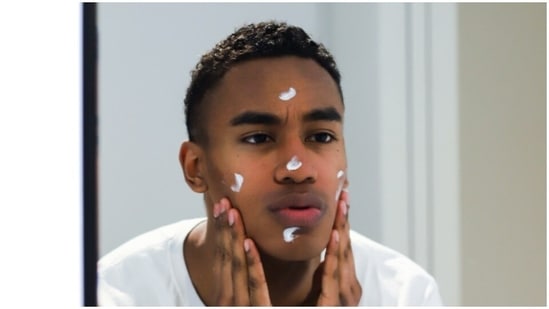
Anti-ageing skincare for air pollution: 8 essential tips to fight ‘very poor’ AQI's assault on your skin
5 months ago | 5 Views
Air pollution is a growing issue worldwide that affects not just our lungs but also our skin - the largest organ in the body. Poor air quality presents serious concerns in metropolitan areas where the Air Quality Index (AQI) frequently surpasses healthy limits.
Hidden dangers of air pollution on your skin
In an interview with HT Lifestyle, Dr Vijaya Gowri Bandaru, Visiting Consultant - Dermatology at Sakra World Hospital, expalined, “Airborne pollutants that can negatively impact skin health include particulate matter (PM2.5 and PM10), solar UV radiation, polycyclic aromatic hydrocarbons, volatile organic compounds, nitrogen oxides, cigarette smoke, heavy metals, and arsenic. Free radicals can harm skin cells as a result of these pollutants' ability to cause oxidative stress and inflammation. Furthermore, pollution particles can block pores, which can exacerbate inflammation and cause acne breakouts, especially in people with sensitive skin or pre-existing disorders like rosacea or eczema.”
Although the human skin serves as a biological barrier to protect the body from physical pollutants and pro-oxidative chemicals, long-term exposure to excessive concentrations of these dangerous substances can have negative effects. Dr Vijaya Gowri Bandaru elaborated, “Cigarette smoke can cause premature ageing and a higher incidence of disorders like psoriasis and acne, while ultraviolet radiation has been associated with an increased risk of skin malignancies. Pollutants can also deplete the skin's natural oils, upsetting the skin's moisture balance and causing inflammation and dryness. To protect your skin, wear long sleeves and cover your face while you're outside in the sun.”

Protect your skin with these proven tips
Dr Vijaya Gowri recommended the following tips to protect your skin from poor AQI:
1. When the air quality is bad, avoid exercising outside as much as possible. Better conditions are usually seen in the early morning. To lessen exposure to pollution, stay away from busy areas whenever you can.
2. Double cleansing is a very efficient way to get rid of both water-soluble and oil-soluble contaminants from your skin. It involves using an oil-based cleanser first, then a water-based one. This technique helps the skin heal from daily exposure to damaging particles by guaranteeing that all traces of pollution are eliminated. To thoroughly cleanse your skin without depriving it of vital moisture, use a mild, sulfate-free cleanser.
3. Strong antioxidants like niacinamide, vitamin C, and vitamin E help counteract free radicals and stop them from harming your skin. Excellent antioxidants that guard against environmental stresses include resveratrol and green tea extract.
4. Your skin's natural defenses against pollutants can be strengthened by regular exercise, enough sleep, and a healthy diet. Eating antioxidant-rich foods such as leafy greens, almonds and berries will help your body fight oxidative damage even more. Supplement your diet with probiotics.

5. Select a moisturiser with humectants, such as glycerin or hyaluronic acid, which attract and retain moisture in the skin. Furthermore, fatty acid or ceramide-containing moisturisers will aid in restoring the skin's natural barrier, which will keep contaminants out.
6. Another important way to keep your skin hydrated from the inside out is to drink lots of water throughout the day. Skin that is well-hydrated is more resistant to environmental stressors like pollution.
7. Choose sunscreens with an SPF of 30 or more that are broad-spectrum, and think about using one that has physical blockers like titanium dioxide or zinc oxide.
8. Limit exfoliation to two to three times per week and use a light exfoliator, such as one that contains salicylic or lactic acid. The accumulation of contaminants and dead skin cells that obstruct pores must be removed by exfoliation.
Read Also: What causes hay fever? 5 environmental allergens to be wary of





















